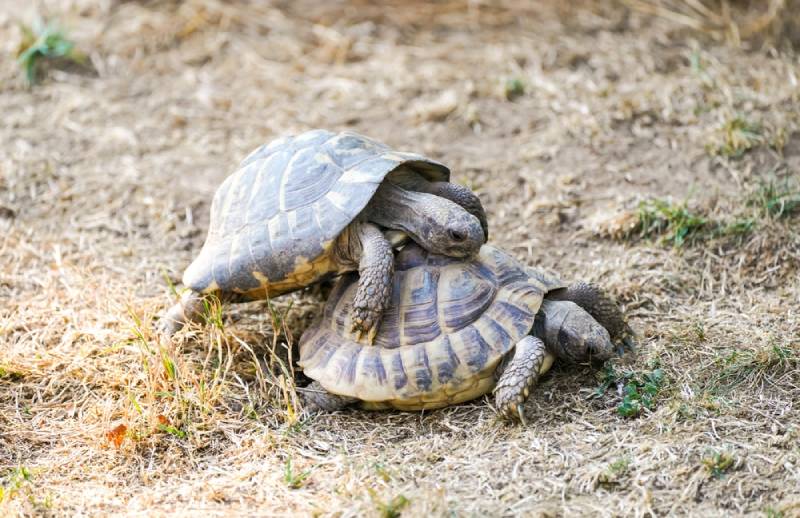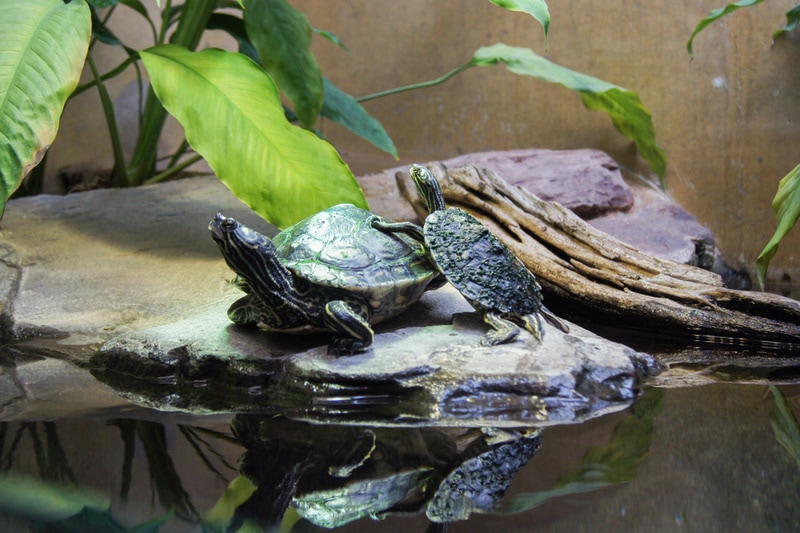Can Turtles Eat Onions? Vet-Reviewed Nutrition Facts & FAQ

By Misty Layne
Updated on
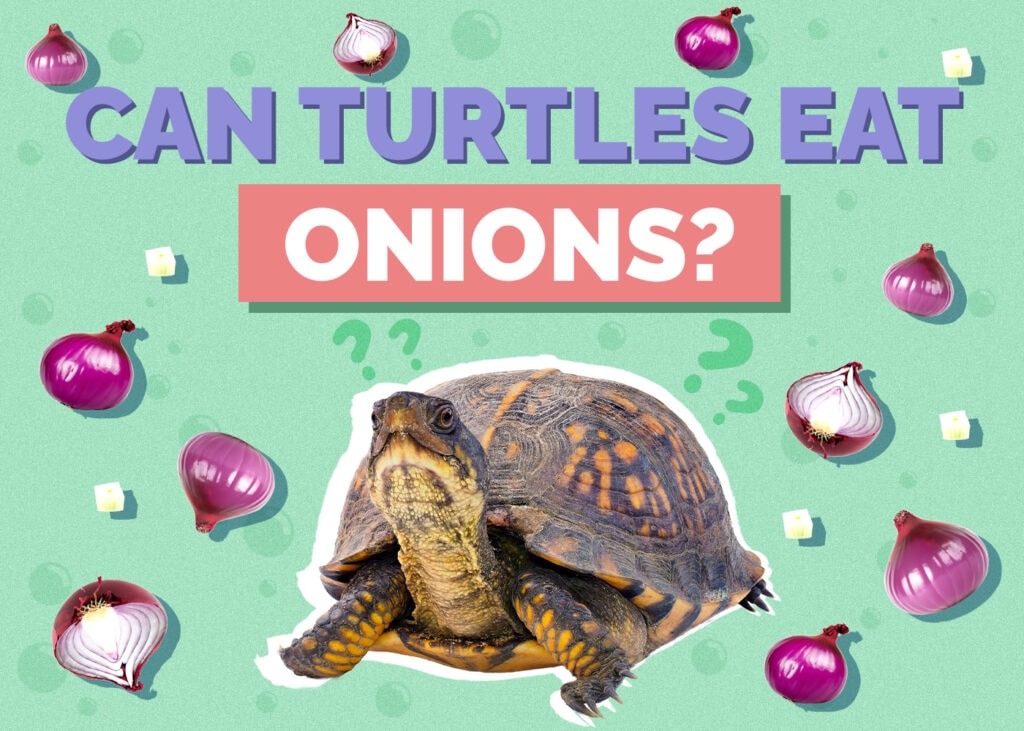
Click to Skip Ahead
As a turtle owner, you know your pet needs plenty of veggies in its diet, but you might be wondering which vegetables are okay for your pet to eat. After all, turtles enjoy a variety of vegetables, just like we do, so it’s good to switch things up every now and then. But with turtles, there are things you need to consider when choosing foods, such as the calcium-to-phosphorus ratio.
One vegetable people often question is onions; can turtles eat onions? The answer is a resounding no! In fact, some call onions the “forbidden vegetable” for turtles. Want to know why that is? Keep reading to learn about the dangers of feeding onions to your pet!
The Nutrition of Onions
Do onions have any nutritional value? Like most foods, yes, they have nutritional value. However, considering the perils of onions for turtles, any benefits likely aren’t worth feeding it to your pet. Here’s a breakdown of the nutritional value of 3.5 ounces of onion:
- Calcium: 23 mg
- Carbohydrates: 9.34 g
- Folate: 19 mcg
- Iron: 0.21 mg
- Magnesium: 10 mg
- Niacin (B3): 0.116 mg
- Pantothenic acid (B5): 0.123 mg
- Phosphorus: 29 mg
- Potassium: 146 mg
- Protein: 1.1 g
- Sugar: 4.24 g
- Vitamin C (L-ascorbic acid): 7.4 mg
As you can see, onions have some nutritional value; but looking at this list, you probably have an idea of why they aren’t that great for our turtle friends.
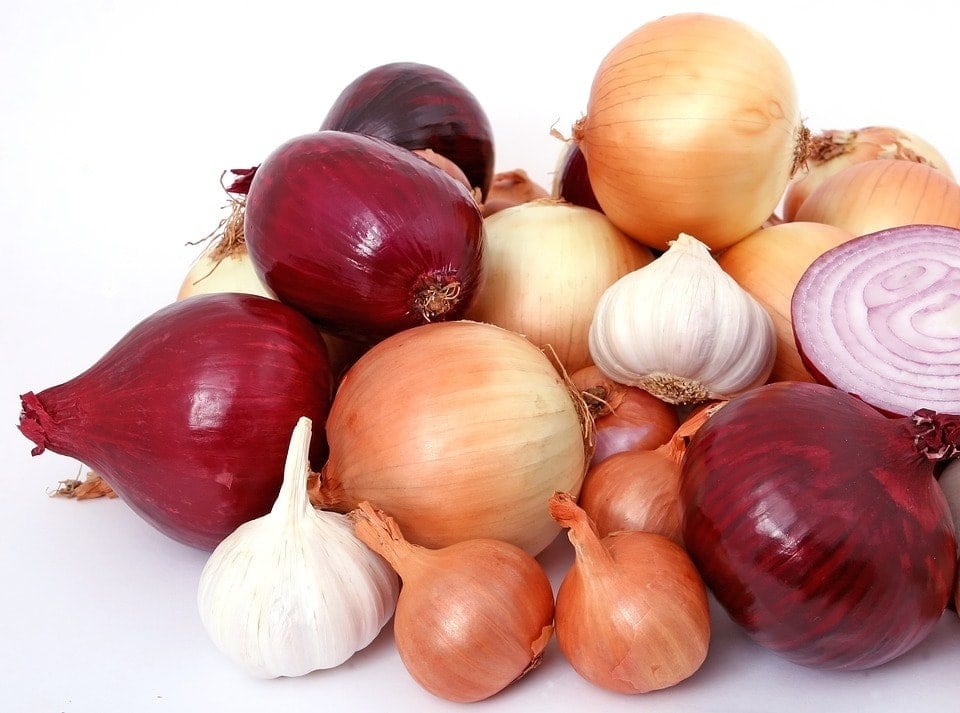
Why You Shouldn’t Feed Onions to Turtles
The first thing you likely noticed about the nutritional value of onions is that there’s more phosphorus than calcium, so it doesn’t meet the ideal 2:1 ratio. And when this ratio isn’t met, and there’s more phosphorus in your turtle’s system than calcium, the phosphorus will bind with the calcium, preventing its absorption. That lack of calcium absorption can eventually lead to metabolic bone disease.
However, this isn’t the main reason onions are bad for turtles to eat. The biggest reason turtles should avoid onions is the n-propyl disulfide it contains. This compound is responsible for destroying red blood cells, which leads to anemia that can be life-threatening. Anemia isn’t something you’d normally think of when you think of health concerns in turtles, but it has been known to happen.
What Vegetables Can I Feed My Turtle?
There are many vegetables that are safe for turtles to eat, so you don’t need to worry your pet’s diet won’t be varied enough! Just a few of the turtle-safe veggies you can give your pet include:
- Asparagus
- Bell peppers
- Bok Choy
- Broccoli
- Carrots
- Collard greens
- Corn
- Dandelion
- Green beans
- Kale
- Mushrooms
- Mustard greens
- Squash
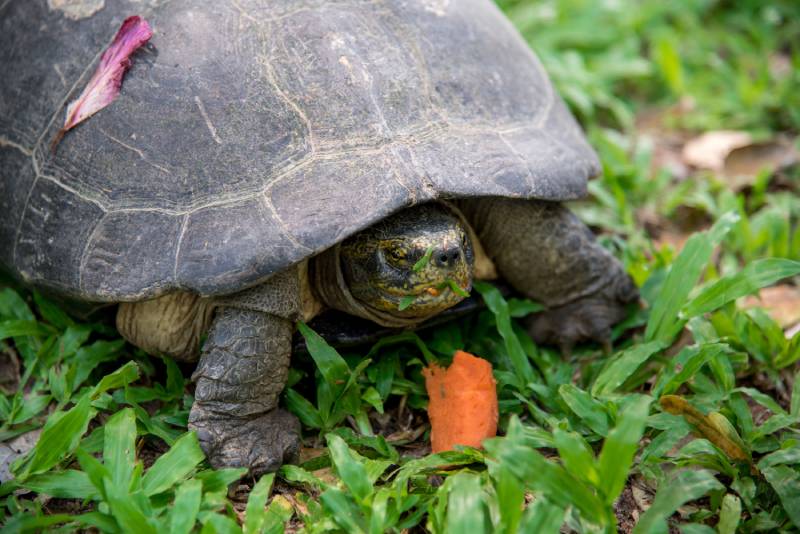
You can also safely throw in a few fruits every once in a while for your turtle to eat, such as:
- Apples
- Figs
- Mango
- Melons
- Peaches
- Pears
- Raspberries
- Strawberries
Fruits should only be given sparingly, as turtles are particularly fond of them and will begin to forgo their veggies in favor of the fruits leading to nutritional deficiencies. Only 10% to 20% of your turtle’s diet should consist of fruit.
You can feed your turtles fruits and veggies either raw or cooked, though raw is generally healthier as cooking may destroy some of the nutrients these foods contain.
Final Thoughts
When it comes to veggies that are safe for your turtle to eat, onions are not one of them. Onions contain a compound that can be toxic to turtles, which can lead to anemia (or the destruction of red blood cells). Onions also don’t have the proper calcium-to-phosphorus ratio needed for the turtle diet, so eating too much of this could lead to a calcium deficiency in your pet, which in turn could result in metabolic bone disease.
So, keep your turtle away from onions! There are plenty of other veggies (and fruits!) you can safely feed your pet turtle, so it has a varied diet.
Related Reads:
Featured Image Credit: Couleur, Pixabay


